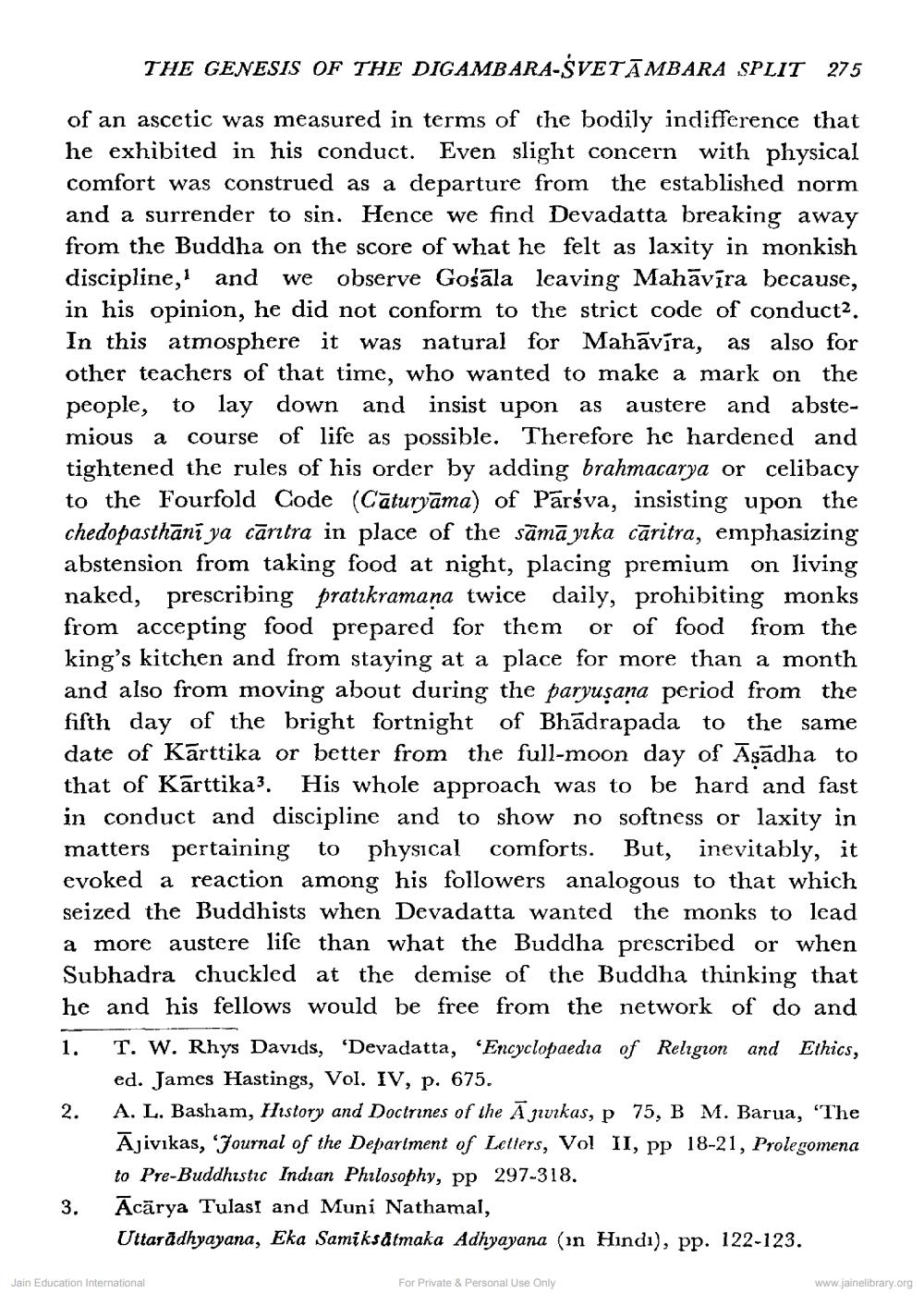________________
THE GENESIS OF THE DIGAMBARA-ŚVETĀMBARA SPLIT 275
of an ascetic was measured in terms of the bodily indifference that he exhibited in his conduct. Even slight concern with physical comfort was construed as a departure from the established norm and a surrender to sin. Hence we find Devadatta breaking away from the Buddha on the score of what he felt as laxity in monkish discipline, and we observe Gośāla leaving Mahāvīra because, in his opinion, he did not conform to the strict code of conduct2. In this atmosphere it was natural for Mahāvíra, as also for other teachers of that time, who wanted to make a mark on the people, to lay down and insist upon as austere and abstemious a course of life as possible. Therefore he hardened and tightened the rules of his order by adding brahmacarya or celibacy to the Fourfold Code (Cāturyāma) of Pārsva, insisting upon the chedopasthāni ya cārıtra in place of the sāmā yıka cāritra, emphasizing abstension from taking food at night, placing premium on living naked, prescribing pratikramana twice daily, prohibiting monks from accepting food prepared for them or of food from the king's kitchen and from staying at a place for more than a month and also from moving about during the paryusana period from the fifth day of the bright fortnight of Bhādrapada to the same date of Kārttika or better from the full-moon day of Āsādha to that of Kārttika3. His whole approach was to be hard and fast in conduct and discipline and to show no softness or laxity in matters pertaining to physical comforts. But, inevitably, it evoked a reaction among his followers analogous to that which seized the Buddhists when Devadatta wanted the monks to lead a more austere life than what the Buddha prescribed or when Subhadra chuckled at the demise of the Buddha thinking that he and his fellows would be free from the network of do and 1. T. W. Rhys Davids, 'Devadatta, 'Encyclopaedia of Religion and Ethics,
ed. James Hastings, Vol. IV, p. 675. 2. A. L. Basham, History and Doctrines of the Āzurkas, p 75, B M. Barua, 'The
Ajivikas, Journal of the Department of Letlers, Vol II, pp 18-21, Prolegomena to Pre-Buddhistic Indian Philosophy, pp 297-318. Ācārya Tulasi and Muni Nathamal, Uttaradhyayana, Eka Samiksatmaka Adhyayana (in Hindi), pp. 122-123.
Jain Education International
For Private & Personal Use Only
www.jainelibrary.org




